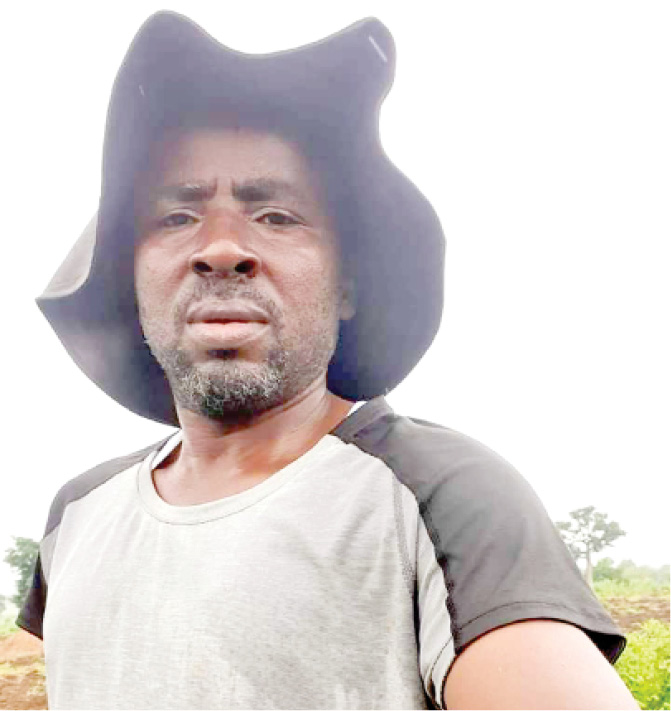Rice farmer resolute despite losing N20m to drought
Vitalis Tarnongu is resolute in his determination to boost rice production in Benue State, even after losing N20 million to drought during the 2020 wet-farming season. Although he is currently working to cover the losses incurred on his farm last year, Tarnongu has further taken steps to enhance rice production all year round. How UBA […]

Vitalis Tarnongu
Vitalis Tarnongu is resolute in his determination to boost rice production in Benue State, even after losing N20 million to drought during the 2020 wet-farming season.
Although he is currently working to cover the losses incurred on his farm last year, Tarnongu has further taken steps to enhance rice production all year round.
- How UBA official was killed, buried at his Yobe residence by ‘trusted friend’
APC founded on lies, blackmail, can’t go beyond 2023 – Lamido
“I recorded huge success in farming and made money in the past years. But within the past two years, there had been challenges. Last year, it was drought (shortage of rainfall) and I suffered a big loss.
“I invested N27m on my rice farm, and in the end, only got 380 bags, which I sold slightly above N6 million. I lost over N20m.
“But I am going to remain in my farm. I didn’t bother much about the loss because I believe that this year I will recover the loss,” he said.
To this end, Tarnongu mapped out 100 hectares of land where he already planted rice while he carved out another 250 hectares for his out-grower scheme, consisting of community people, students and colleagues.
He is also building a reservoir on the large piece of farmland located in the premises of Joseph Saawuan Tarka University of Agriculture, Makurdi (JOSTUM) to enable him cultivate crops all-year-round.
“I am investing in rain-fed agriculture at the moment. I got foundation seed from the Seed Council and multiplied it to certified seed, which I planted earlier.
“The one I did last year I sold to a company that is producing. Before now, I multiplied rice seeds and transplanted them in June this year,” he said.
Tarnongu added that of the total 1,000 hectares of land made available to him by the university, he had been able to develop 500 hectares.
He expressed optimism that, “We will cultivate all the 500 hectares. I have one of my bosses at Lobi Farms currently working there with me. He has cleared about 200 hectares and planted crops on it.”
According to him, what he does with his out-grower system include identifying the farmers, procuring inputs, and in turn, give it to them as loans, expected to be paid with harvest in December.
He then buys over the harvest, which on the other hand helps the peasant farmers to earn income without any stress of sourcing funds to buy inputs.
Tarnongu further explained that as a big time farmer who gets all those inputs from big reputable companies, the value chains created along the line could only be imagined as everyone usually has a reason to smile to the banks.
“However, the farmers who applied for my out-grower scheme this year outnumbered the availability of the 500 developed piece of land, so I hope to expand soon.
“The rush is understandable because I already have an established rice market, which I can’t even cope with – Olam, Miva and Stallion companies. And I often get support of inputs from Olam.
“Our major challenge in rice production in Benue State, however, remains land development, which is what I am doing, but it is quite capital intensive. So I appeal to the state government to help peasant farmers develop lands to make it easier for them to cultivate crops.
“If government develops lands, cluster the farmers, I think the issue of herders attack would also greatly reduce,” he said.
